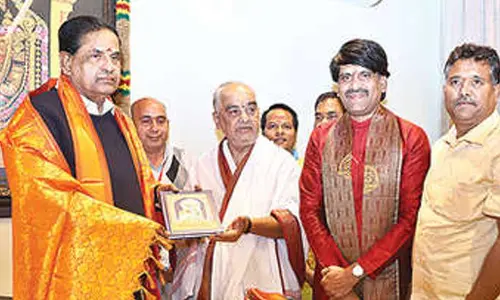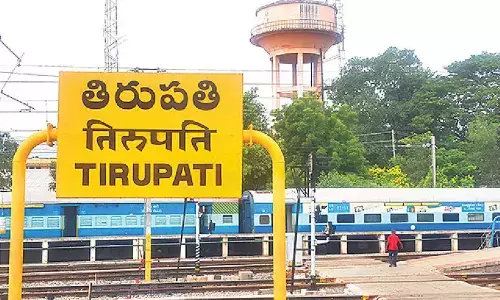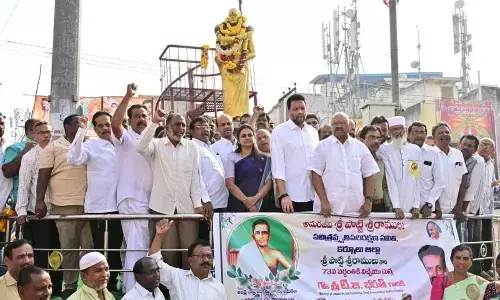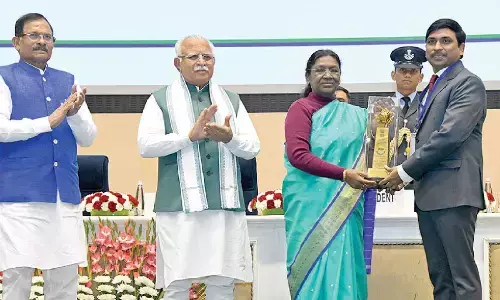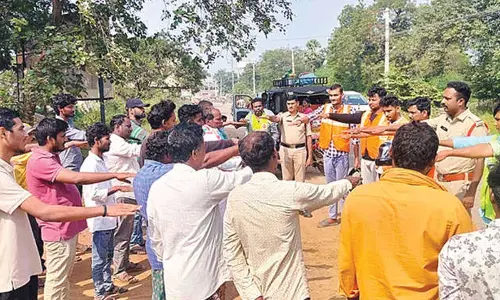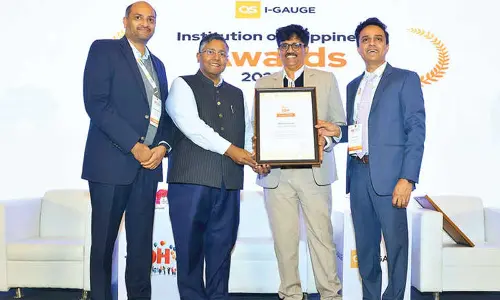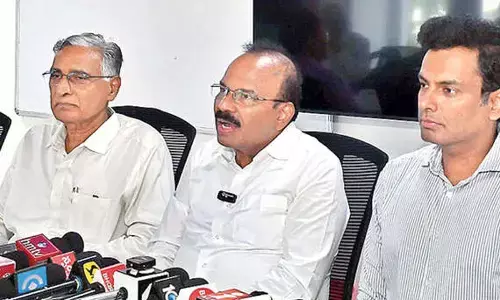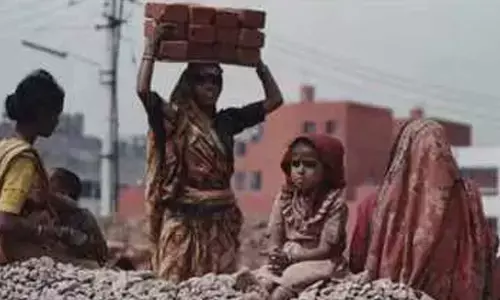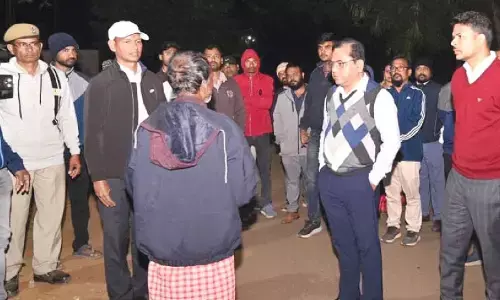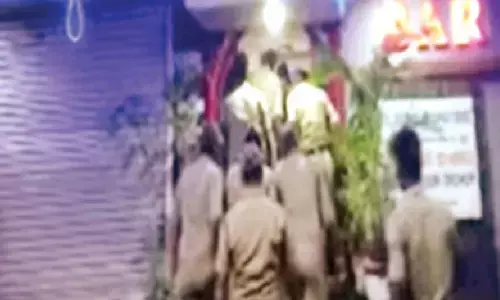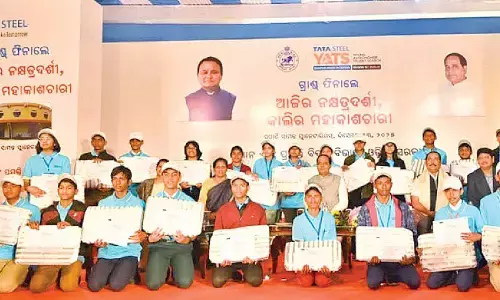BJP’ill be out, but Congress won’t be in
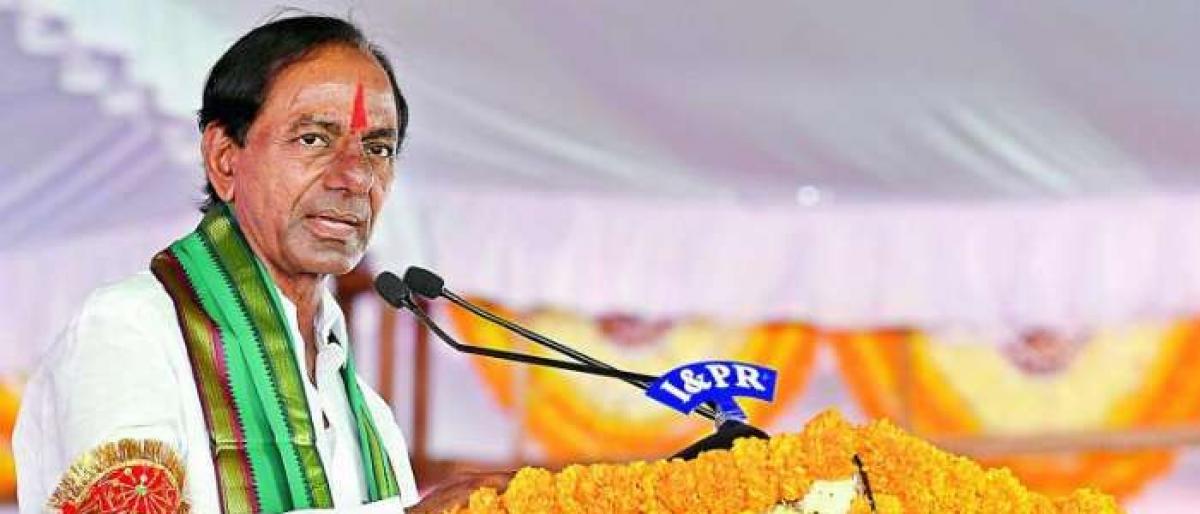
South Indian regional party Telugu Desam moved and National Party Congress spearheaded noconfidence motion against another national party BJPled government But it is defeated, leaving many lessons to be learnt and several conclusions to be drawn
South Indian regional party Telugu Desam moved and National Party Congress spearheaded no-confidence motion against another national party BJP-led government. But it is defeated, leaving many lessons to be learnt and several conclusions to be drawn. As expected, the underdog Chief Minister of Andhra Pradesh, who despite knowing that he would certainly lose the battle, fought on, described the whole affair as a fight between morality and majority hinting that morally he won!
Both Congress and BJP claimed to be true alternatives to each another. The way AICC president Rahul Gandhi hug PM Modi and the latter called him back and patted him reminds everyone of the saying “let us together fool all others” as if there cannot be an alternative to both BJP and Congress.
One picture that has clearly emerged is that the BJP is on the move to get defeated in the next general election, but the Congress is certainly not going to replace it – come what may. While one of the BJP’s initial allies the Telugu Desam moved no-trust motion against it, another ally Shiva Sena walked out from the House. BJP, however, found a new ally in AIADMK.
A couple of other splinter parties which are in alliance with NDA also, despite voting in favour of BJP, supported the special status issue raised by TDP and thus expressed no-confidence in the government indirectly. Telangana Rashtra Samithi is perhaps the one and only party which not only received a word of commendation and appreciation from Prime Minister Modi but also presented its case perfectly and did not hesitate to criticise the government on pertinent issues and asserted its rights. It finally rightly distanced itself from both Congress and BJP by abstaining in the voting. TRS thus confined rightly and strictly to its demand of a non-BJP and non-Congress national alternative.
The question now is what next? What would be the likely outcome as and when elections are held? What are the chances of national and regional parties and who would be victorious? Though it’s a million-dollar question, it has certainly an answer in itself. It is exactly in this context we should look at the call given by Telangana Chief Minister K Chandrashekar Rao a couple of months ago that India requires a qualitative change in the political system.
Yes… India needs a qualitative and momentous change as there is a political vacuum as seen through the entire process of no-confidence motion where literally every opposition party that supported the motion miserably failed in pointing out the specific reasons for no-confidence. At the same tone, Modi and his BJP as well as NDA allies equally failed in projecting the government, the reason being it has nothing to highlight in its four-plus years of governance. There is a crystal clear political vacuum, as the present ruling coalition led by BJP, and the so-called projected alternative, Congress, cannot provide the momentum that India needs and needs very critically.
If one analyses the speech of Modi while replying to the no-confidence motion, barring perhaps some harsh realities like, his observation on TRS as a matured party, it mostly appeared as a routine, like a customary budget presentation speech!
It’s time that the country needs a new direction as 70 years have passed since attaining independence and still we are struggling for basic minimum needs as evident from the observations of opposition during the no-confidence motion and the inability of Prime Minister to effectively counter it. When countries like China, Japan, South Korea, Singapore, Taiwan, Malaysia, Indonesia, Thailand, Vietnam, Philippines and many more could accomplish miraculous growth, what prevented the same in India is a question to be answered by both Congress and BJP which ruled this country alternately.
The national political parties and the prevailing political system failed the nation, as was evident from their speeches during the no-confidence motion. None of the national parties mentioned about the reform agenda that the country badly needs now. None of them spoke about how country’s wealth could be leveraged, how states could be empowered, how to get rid of poverty and how to set a development-centric national agenda.
None of the national political parties exhibited the mindset of out-of-the-box thinking which the need of the hour is. The opportunity that both the national parties got during the debate was only utilized for hurling remarks with personal antagonism. There was no talk or suggestion on aspects like reform agenda that includes structural changes to leverage the country’s strength, economic reforms, constitutional reforms, electoral reforms, judicial reforms as well as administrative and governance reforms.
These are what Chief Minister Telangana K Chandrashekar Rao has been often mentioning as part of his national agenda for a qualitative change. At a time when the whole world was anxiously witnessing the proceedings of the no-confidence motion, both the national parties could have spelt out them to project our country globally.
This apart, assessing the mood of the people at large, and the polarisation that is likely to take place as well as possibilities of a change at the Centre, there is every possibility for a change as and when elections are held. The statistical data amply proves it. The data collected scientifically shows that neither Congress nor BJP has an advantage to get the magic mark.
In the southern states of Kerala, Tamil Nadu, Pondicherry, Telangana and Andhra Pradesh as well as West Bengal and Odisha, which account for 165 Lok Sabha seats, there is absolutely no scope for BJP. This leaves BJP to win 273 seats from out of the remaining 378 from all other remaining states, which will be a herculean task. With one after one, its allies deserting BJP, it is also equally doubtful that NDA as a whole could garner that strength. BJP perhaps may have a smart political game in north-east states, Union Territories, Jammu and Kashmir and Goa which together account for just 38 seats.
As far as Congress party is concerned it may have comparatively better prospects than BJP in states like Uttarakhand, Himachal Pradesh, Gujarat, Rajasthan, Chhattisgarh and Madhya Pradesh, which account for 100 seats in Lok Sabha. States where less scope for Congress if there is no alliance with regional parties are UP, Bihar, Jharkhand and Maharashtra which together account for 182 seats. Even for BJP in these states it is a difficult go. However Congress has an edge in Kerala, Karnataka, Punjab, Haryana and North-East and Union Territories accounting for 101 seats even though there are regional parties.
It’s only in MP, Chhattisgarh, Rajasthan, Gujarat, HP and Uttarakhand the presence of regional parties is not there. They have a total of 100 seats. Without aligning with either Congress or BJP, the regional parties will win at least 275 seats (More than the magic mark) out of 425 in UP, West Bengal, Tamil Nadu, Odisha, Telangana, Karnataka, AP, Delhi, Maharashtra, Jharkhand, Assam, Punjab, Bihar, Jammu and Kashmir, Haryana and Kerala.
This leaves with little or no doubt that the BJP will be out after next elections, but Congress will not be in, and it would be the regional parties together that would emerge victorious to form a government at the centre. This, when it comes to power, is likely to push the national agenda for a qualitative change in politics and governance with regional party leaders like KCR taking a possible lead at the national level.








